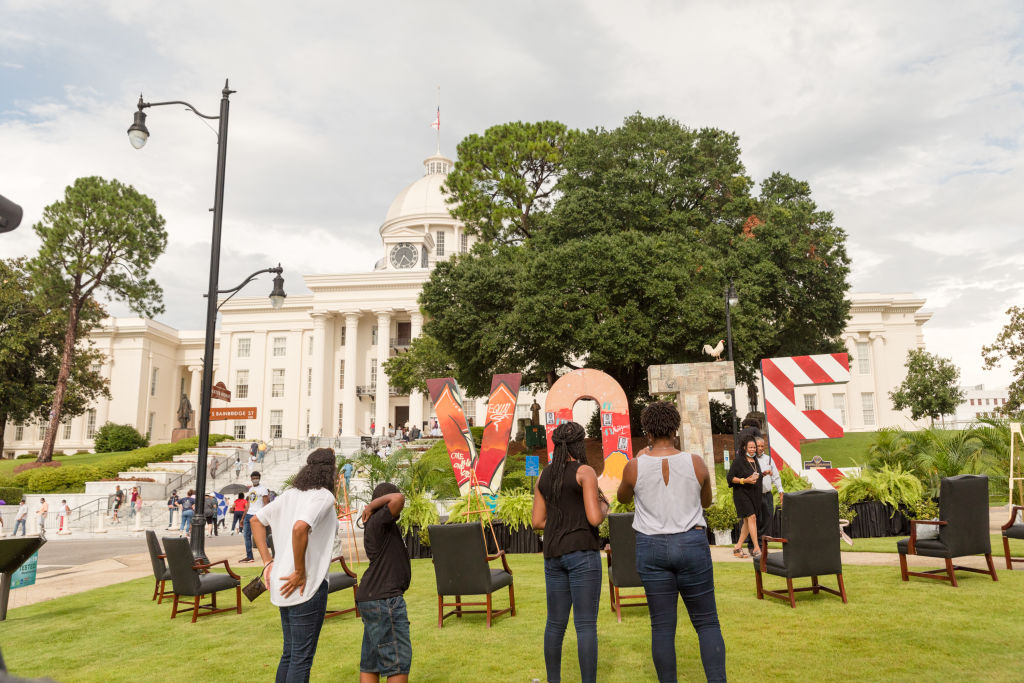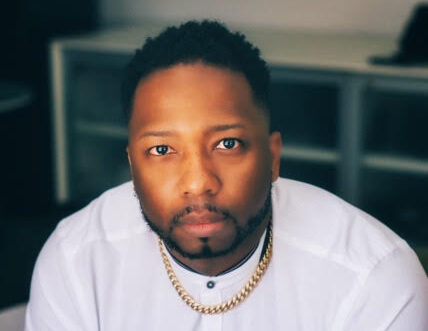Your vote can save Black lives: The importance of making your voice heard
OPINION: Dr. Shamard Charles argues that voting is literally a matter of public health and safety for the Black community.
When I heard the slogan “Vote or Die,” popularized in 2004 by Sean “Diddy” Combs, I could hardly keep a straight face. Now, amid COVID-19’s ongoing impact on Black communities and growing social unrest sparked by the death of George Floyd, the slogan is prophetic.
I am a Black public health doctor. COVID-19 hit white communities hard, but it has a vice grip on Black communities evoking memories of an aphorism said by my grandmother and countless other Black Americans: “When White America catches a cold, Black America gets pneumonia.”
Read More: Foot Locker stores will turn into voter registration sites
A study led by Yale researchers found that Black Americans are 3.5 times more likely to die from the coronavirus versus their white counterparts. This is not surprising given that Black people are more likely to have preexisting conditions – such as asthma, high blood pressure and diabetes – as a result of underemployment, substandard housing, inferior healthcare, and lack of access to healthy foods. The virus has unmasked inequities that have existed for hundreds of years for the world to see and offered the nation a glimpse into the lopsided destruction inflicted by disease on the Black community.
As the dust settles and we begin to unpack the events that have led to this transformative period in our history, one thing is clear: this administration does not care about Black lives.

The disproportionate impact of the virus on Black communities is not the only traumatic event that needs addressing. A pattern of extrajudicial killings of Black people has incited protests of racially biased police violence across the country, while counter-protests in support of police crop up in their wake, creating a more deeply entrenched political divide. The seemingly never-ending dark cloud of police misconduct, coupled with COVID-19, has created an untenable situation for many Black Americans. Cries of “arrest the cops that murdered Breonna Taylor” have fallen on deaf ears and the image of police officers shooting Jacob Blake seven times in the back while his children watched are ingrained in our minds. In the wake of these events, the Black Lives Matter movement has highlighted that moral victories and symbolic gestures no longer cut it.
Black Americans and their allies must carry the momentum of the Black Lives Matter movement to the polls and vote, in mass, like our lives depend on it, because they do.
Racism and ceased procreation stemming from Black premature deaths represent two of our nation’s greatest public health crises in America. A recent University of Michigan study found that premature deaths at the hands of law enforcement made police violence one of the leading causes of death for young Black men. Another study found that higher rates of mass incarceration and stricter sentencing laws resulted in a two-year decrease in life expectancy for Blacks over whites. Lack of investment in Black communities and the racist policies that support it – see: redlining, restrictive zoning, and gerrymandering – have created conditions that leave Black people with little margin for error when it comes to their mental and physical health. Voting in the 2020 election can change that.
The COVID-19 pandemic has reminded us that the time to end the disproportionate and unjust impact of disease on people of color is long overdue. Heightened public health approaches are needed to bring attention to a racial group that routinely dies five to six decades prior to our life expectancy from causes that are completely preventable. Undoing this legacy of disproportionate harm requires various transformative actions, beginning with electing decision-makers who are committed to creating more equitable communities. Black mistrust in government is not unfounded, but continued civic engagement is vital to supporting healthcare workers, health disparity researchers, and the public health community in our quest to mitigate the impact of disease on vulnerable populations.

If the Black vote is the swing vote, as it often seems to be, than it is prudent for voters on the fence to rethink their positions on voting, as their choice may be the difference between vitally important policy change–such as the reinstatement of the pandemic response team in the National Security Council–police reform, increases in public education funding, or the creation of affordable housing programs that focus on fair-market Black home ownership.
If we don’t vote people into office who advocate for initiatives that support our daily livelihood, we can’t expect our tax dollars to be spent in our best interests. We need to create the conditions for good health for all residents by seeking changes in the various policies – criminal justice, law enforcement, housing, and transportation to name a few – that are determined by elected officials. We must not simply give our vote away – we must leverage it, put our demands in writing, and hold elected officials accountable if they fail to deliver on their promises.
America is well aware that the Black vote can be transformational and effective at the local, state, and national level – this is why the political incumbents of Bible Belt states like North Carolina and Georgia have gone to great lengths to actively suppress it. When looking into low Black voter turnout we must take into account the ways that Blacks are systematically denied the ability to vote. Voter suppression keeps the status quo in place. In 2016, President Trump boasted that “the African-American community was great to us. If they had any doubt, they didn’t vote… and that was almost as good.” In an election that was largely decided by fewer than 80,000 votes across three states, this was a stark reminder that every vote matters, but it also furthered a narrative that is, at best, incomplete.

The Black community does not deserve the unwarranted criticisms of low voter turnout. In a good year, only 60 percent of all voting-eligible American citizens cast ballots, so it is unfair to hold a group that has been marginalized and disenfranchised to a higher standard. Still, for the first time in many of our adult lives, our voices will be heard at the polls thanks to heightened awareness and active anti-voter suppression campaigns funded by some of the nation’s most prominent figures, like LeBron James and Stacey Abrams. If the barriers to vote are in fact mitigated but Black voter turnout remains low, it will provide credence to the mischaracterization of Black votership.
Voting is not the only outlet for political change, but it is one of the main ways to make our voice heard on issues that affect the Black community. Voting is more than a right or a way to pay homage to our forefathers who fought so hard for us to have it; voting in large numbers is a way to control the narrative and cement the legacy of the Black Lives Matter movement. A non-vote inadvertently supports policies contrary to our ideals and wellbeing.
Read More: Georgia’s Fulton County works to avoid another vote debacle after primary snafu
Cultural anthropologist Margaret Mead famously said: “Never doubt that a small group of thoughtful, committed citizens can change the world; indeed, it’s the only thing that ever has.”
While the COVID-19 pandemic and police misconduct present an existential crisis for each of us, it is also an opportunity to learn anew, and marks, for many of us – maybe for the first time – that our destinies are inextricably intertwined. America has seen the way it treats Black people and now it cannot unsee it. Civil rights and racial equality are going to be really important issues again for this election. Yes, we must learn from past mistakes and make our voices heard at the polls on November 3rd, but more importantly, we must vote together or risk dying apart.

Dr. Shamard Charles is an assistant professor of public health and health promotion at St. Francis College and sits on the anti-bias review board of Dot Dash/VeryWell Health. He is also host of the health podcast, Heart Over Hype. He received his medical degree from the Warren Alpert Medical School of Brown University and his Masters of Public Health from Harvard’s T.H. Chan School of Public Health. Previously, he spent three years as senior health journalist for NBC News and served as a Global Press Fellow for the United Nations Foundation. You can follow him on Instagram @askdrcharles or Twitter @DrCharles_NBC.
Have you subscribed to theGrio’s new podcast “Dear Culture”? Download our newest episodes now!
